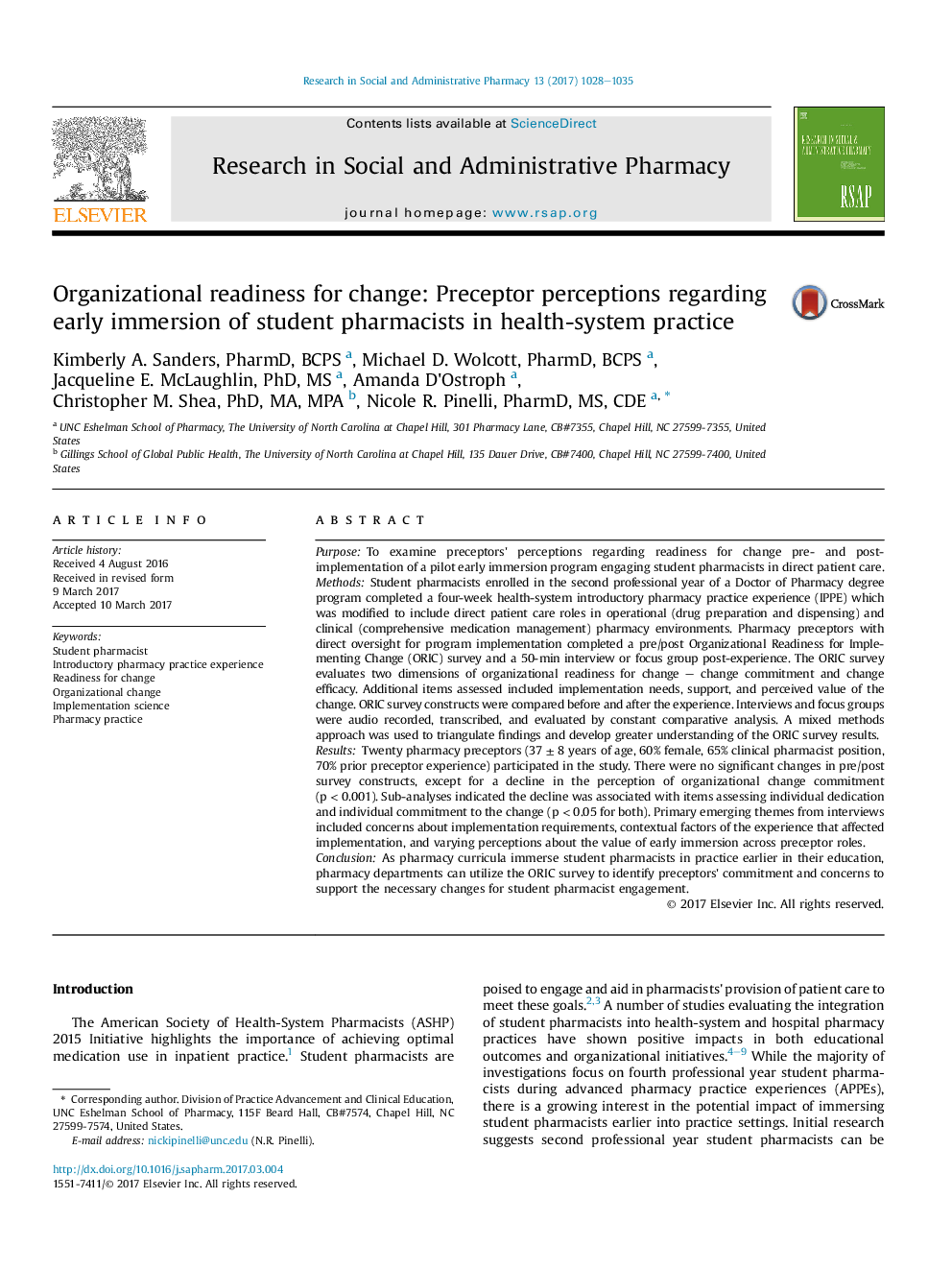| Article ID | Journal | Published Year | Pages | File Type |
|---|---|---|---|---|
| 5551179 | Research in Social and Administrative Pharmacy | 2017 | 8 Pages |
â¢The organizational readiness for change framework was used to examine implementation of a new clinical education program.â¢There were no significant changes in pre/post survey constructs, except for a decline in organizational change commitment.â¢Primary themes included preceptors' concerns about implementation requirements, contextual factors, and change value.
PurposeTo examine preceptors' perceptions regarding readiness for change pre- and post-implementation of a pilot early immersion program engaging student pharmacists in direct patient care.MethodsStudent pharmacists enrolled in the second professional year of a Doctor of Pharmacy degree program completed a four-week health-system introductory pharmacy practice experience (IPPE) which was modified to include direct patient care roles in operational (drug preparation and dispensing) and clinical (comprehensive medication management) pharmacy environments. Pharmacy preceptors with direct oversight for program implementation completed a pre/post Organizational Readiness for Implementing Change (ORIC) survey and a 50-min interview or focus group post-experience. The ORIC survey evaluates two dimensions of organizational readiness for change - change commitment and change efficacy. Additional items assessed included implementation needs, support, and perceived value of the change. ORIC survey constructs were compared before and after the experience. Interviews and focus groups were audio recorded, transcribed, and evaluated by constant comparative analysis. A mixed methods approach was used to triangulate findings and develop greater understanding of the ORIC survey results.ResultsTwenty pharmacy preceptors (37 ± 8 years of age, 60% female, 65% clinical pharmacist position, 70% prior preceptor experience) participated in the study. There were no significant changes in pre/post survey constructs, except for a decline in the perception of organizational change commitment (p < 0.001). Sub-analyses indicated the decline was associated with items assessing individual dedication and individual commitment to the change (p < 0.05 for both). Primary emerging themes from interviews included concerns about implementation requirements, contextual factors of the experience that affected implementation, and varying perceptions about the value of early immersion across preceptor roles.ConclusionAs pharmacy curricula immerse student pharmacists in practice earlier in their education, pharmacy departments can utilize the ORIC survey to identify preceptors' commitment and concerns to support the necessary changes for student pharmacist engagement.
